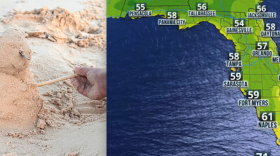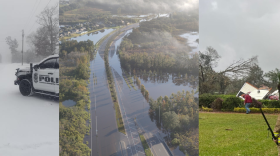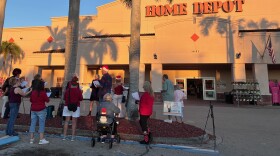RENEE MONTAGNE, host:
This is MORNING EDITION from NPR News. I'm Renee Montagne with Steve Inskeep.
The White House says it is taking seriously some claims of Americans held during the Iran hostage crisis. They say the country's new president-elect was among their captors. To learn more about Iran's next president, Mahmoud Ahmadinejad, we called Gary Sick. He was a member of the National Security Council during the hostage crisis, and he talked with Steve Inskeep.
STEVE INSKEEP, host:
These days, Gary Sick is a professor of Middle East politics at Columbia University, and he continues to closely follow matters in Iran.
Gary Sick, welcome to the program.
Professor GARY SICK (Columbia University): It's good to be with you, Steve.
INSKEEP: Can you just describe, looking back at President-elect Ahmadinejad's life in and around 1979, the time of the Iranian revolution, where was he and what was he doing?
Prof. SICK: He was at a very good university where he earned a PhD in civil engineering. Clearly he was a student during and immediately after the Iranian revolution, and of course, the students were extremely active during that period of time.
INSKEEP: And it was students, of course, who took over the embassy...
Prof. SICK: That's correct.
INSKEEP: ...in 1979.
Prof. SICK: And Ahmadinejad was an officer in one of the student organizations at that time. He was a very strong supporter, or a fervent supporter of the revolution. His credentials on that side are very, very clear. But the people who actually organized and carried out the takeover of the US Embassy are unanimous in saying that he had no role in planning or executing that. They're also unanimous in saying that because of his position as an officer in a student organization, it would be not the least bit surprising that he would be in and out of the embassy, that he would be there being visible, although curiously enough, none of them remember seeing him there. But obviously some of the hostages do.
INSKEEP: What role have people who took part in the hostage-taking played in Iranian life in the years since 1979, 1980, '81?
Prof. SICK: People who were involved in the embassy, a number of them were killed in the Iran-Iraq War. They fought; in many cases, went to the front. Others went back to school, and some of them became politicians. Some of them have remained very conservative, but a number of them--a surprising number of them--have, in fact, now emerged as supporters of President Khatami and the reform movement, and many of them actually have been sent to jail for taking positions that the regime didn't like.
INSKEEP: Has their background as hostage-takers been something that they've needed to hide or something that is, in fact, a credential that you would play up?
Prof. SICK: It is obviously a credential, but it is the kind of credential that is going to attract more attention in the West than it is in Iran. In Iran, there's a sense that that was an episode out of the past. Most Iranians scarcely even think about or remember the hostage crisis, and that is a terrible mistake, because in fact, it is one of the defining moments of the revolution, and it is the defining moment with regard to the outside world, who remembers only mobs of people standing out and waving their fists night after night after night outside the American embassy, shouting, `Death to America.' And it continues to haunt everybody who was involved with US-Iran relations.
INSKEEP: Gary Sick, former staff member at the National Security Council, thanks very much.
Prof. SICK: OK. Transcript provided by NPR, Copyright NPR.







